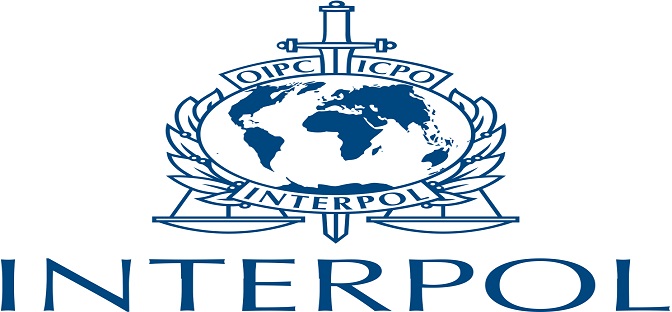General News
Global easing builds momentum but will CBN jump aboard?

By Lukman Otunuga, Senior Research Analyst at FXTM,
A growing sense of unease and trepidation over how badly the coronavirus outbreak will hit the global economy has left financial markets on edge.
Central banks across the world are pulling the trigger monetary easing to shield their respective economies from the virus outbreak with the Bank of England (BOE) joining the ranks on Wednesday. In a move that caught investors off-guard, the BOE launched its first emergency interest rate cut since the financial crisis.
However, the central banks’ unanimous decision to cut interest rates by 50 basis points is more symbolic, as lower interest rates are unlikely to encourage companies to invest or households to save less amid the health crisis. Given how the widening coronavirus outbreak is set to trigger more supply-side shocks, fiscal policy measures could act as a temporary pain reliever before a cure is found.
With the Federal Reserve, Bank of England and other global central banks cutting interest rates, the European Central Bank is expected to join the team on Thursday with a 10-basis point cut.
At this point, the Central Bank of Nigeria (CBN) is unlikely to cut interest rates despite the wave of global easing. The plunge in oil prices has certainly placed Africa’s largest economy on a perilous path filled with uncertainty and danger. WTI Crude and Brent are both trading over 45% lower since the start of 2020, which will most likely hit Nigeria’s foreign exchange reserves and raise speculation around a possible Naira devaluation.
It does not end here. The 2020 budget set the benchmark for Oil at $57 with an Oil revenue goal of N2.64 trillion. Nigeria’s Finance Minister Zainab Ahmad has said that the country would be cutting down on its budget thanks to the sharp decline in Crude Oil prices.
As the MPC meeting looms, investors are questioning what steps the CBN can take to support Nigeria’s fragile recovery. With inflation rising for five consecutive months to 12.13% in January, the CBN could go against the grain by enforcing an interest rate hike if consumer prices accelerates in February.
General News
Interpol Arrests over 570 Cybercriminals across Africa

More than 570 cybercriminals were arrested as part of a sweeping international operation aimed at stopping online fraud operations.

Interpol’s Operation Sentinel, part of its African Joint Operation Against Cybercrime, focused on cybercrime that involved business email compromise, digital extortion and ransomware.
Business email compromise is a technique that uses the identity of a trusted figure, such as a company officer, to trick employees into providing money or revealing corporate secrets.
Digital extortion and ransomware are similar methods of stealing personal information or locking down a computer system and then demanding money from the victim to regain access.
The monthlong investigation in late 2025 recovered $3 million in stolen funds, shut down 6,000 malicious links and decrypted six distinct ransomware programs.
In one scam, fraudsters targeted a Senegalese petroleum company with a business email compromise attack. Attackers used the company’s internal email system, impersonating company executives to authorize fraudulent wire transfers totaling nearly $8 million.
Senegalese authorities stopped the transfers before the criminals could withdraw the funds, according to Interpol.
In Ghana, a ransomware attack against a financial institution encrypted 100 terabytes of data and stole approximately $120,000, disrupting critical services.
Using advanced malware analysis, Ghanaian authorities identified the ransomware software and developed a decryption tool that recovered nearly 30 terabytes of data.
Ghanaian authorities also helped to dismantle a major cyber fraud network operating across their country and Nigeria that stole more than $400,000 from more than 200victims.
Scammers used professionally designed websites and mobile apps to mimic well-known fast-food brands, collecting payments but never delivering orders. Authorities arrested 10 people in Ghana, confiscated more than 100 digital devices and took 30 fraudulent servers offline.
In Benin, authorities took down 43 malicious domains and 4,318 social media accounts linked to extortion schemes and scams, leading to 106 arrests.
Operation Sentinel was the latest takedown of cybercriminals across Africa. In August, Operation Serengeti 2.0 arrested more than 1,200 suspects, confiscated more than $97 million stolen from victims and shut down 25 cryptocurrency mining centers allegedly run by 60 Chinese nationals in Angola.
“The scale and sophistication of cyberattacks across Africa are accelerating, especially against critical sectors like finance and energy,” Neal Jetton, Interpol’s director of cybercrime, said.
As internet access expands rapidly across Africa — largely through mobile phone networks — cybersecurity and education continue to lag, leaving people and companies vulnerable to cybercriminals.
Countries with the largest online populations, including South Africa and Egypt, tend to suffer the highest number of cybercrime events. Security experts estimate that cybercrime accounts for 30% of all crime in West and East Africa.
Nigeria, in particular, has become a hotbed for internet fraud operations.
Among the region’s cybercriminals are so-called Yahoo Boys — teenagers trained by cybercrime operators to carry out online scams, often using social media platforms such as WhatsApp.
Jetton praised the 19 African nations that collaborated with Interpol to break up cybercrime operations across the continent.
“The outcomes from Operation Sentinel reflect the commitment of African law enforcement agencies, working in close coordination with international partners,” Jetton said.
“Their actions have successfully protected livelihoods, secured sensitive personal data and preserved critical infrastructure.”
General News
Facebook Powers Connection, Creativity at African Creators Summit 2026

Facebook will be live at the 2026 African Creators Summit, delivering immersive on-ground experiences designed to connect with and empower Africa’s growing creator ecosystem. The summit will take place on Thursday, January 29, 2026, at the Federal Palace Hotel, Victoria Island, Lagos.

The African Creators Summit (ACS) is one of Africa’s leading gatherings for creators, storytellers, innovators and digital entrepreneurs. This year’s summ]it theme, ‘Building a Sustainable Ecosystem Where Africa Trades Its Swag’, aligns with Facebook’s focus to empowering creators with tools that support monetisation, audience reach, discovery and community building.
“We are dedicated to empowering creators in the communities they’re already active in so they can succeed and grow on Facebook while sharing original and engaging content,” said Oluwasola Obagbemi, Head of Communications, Sub-Saharan Africa at Meta. “Events like the African Creators Summit, which bring together creators, storytellers and innovators, provide a platform to demonstrate that Facebook is all about connecting people.
“We are excited to showcase the opportunities Facebook offers to reach a massive global audience, connect more deeply with real people and earn real money across all content formats.”
The event will bring together creators, young adults and Nigerian celebrities to connect, collaborate and create memorable moments at the Facebook-themed booth. Attendees will engage in interactive experiences that highlight authentic connection, community-building and the power of real relationships on Facebook—reinforcing the platform’s role as the largest network for meaningful connections across Africa.
“Creators are the teachers and architects of modern culture. What they build today becomes the standard tomorrow — shaping how we dress, how we think and how we show up in the world.
“That is why we introduced the African Creators Summit: to create the bridge between creators, businesses, platforms, policymakers and partners across Africa, so we can truly understand each other and build together.
“Facebook’s continued support of ACS reflects a long-standing belief in creators — their stories, their businesses and their power to drive global impact from Africa.
“It’s a clear commitment to creativity as a catalyst for cultural influence and economic growth.” – Oladapo Adewunmi (Convener African Creators Summit)
Over the years, Facebook has evolved to meet changing needs by building strong experiences across Groups, Video and Marketplace. With the African Creators Summit positioned not just as an event but as a catalyst powering a diverse, inclusive and future-focused Pan-African creative ecosystem, Facebook continues to power creativity and connection across the creator community.
General News
Why Nigeria’s Banks Still on Shaky Ground with Big Profits, Weak Capital

By Blaise Udunze
Despite the fragile 2024 economy grappling with inflation, currency volatility, and weak growth, Nigeria’s banking industry was widely portrayed as successful and strong amid triumphal headlines. The figures appeared to signal strength, resilience, and superior management as the Tier-1 banks such as Access Bank, Zenith Bank, GTBank, UBA, and First Bank of Nigeria, collectively reported profits approaching, and in some cases exceeding, N1 trillion. Surprisingly, a year later, these same banks touted as sound and solid are locked in a frenetic race to the capital markets, issuing rights offers and public placements back-to-back to meet the Central Bank of Nigeria’s N500 billion recapitalisation thresholds.

The contradiction is glaring. If Nigeria’s biggest banks are so profitable, why are they unable to internally fund their new capital requirements? Why have no fewer than 27 banks tapped the capital market in quick succession despite repeated assurances of balance-sheet robustness? And more fundamentally, what do these record profits actually say about the real health of the banking system?
The recapitalisation directive announced by the CBN in 2024 was ambitious by design. Banks with international licences were required to raise minimum capital to N500 billion by March 2026, while national and regional banks faced lower but still substantial thresholds ranging from N200 billion to N50 billion, respectively. Looking at the policy, it was sold as a modern reform meant to make banks stronger, more resilient in tough times, and better able to support major long-term economic development. In theory, strong banks should welcome such reforms. In practice, the scramble that followed has exposed uncomfortable truths about the structure of bank profitability in Nigeria.
At the heart of the inconsistency is a fundamental misunderstanding often encouraged by the banks themselves between profits and capital. Unknown to many, profitability, no matter how impressive, does not automatically translate into regulatory capital. Primarily, the CBN’s recapitalisation framework actually focuses on money paid in by shareholders when buying shares, fresh equity injected by investors over retained earnings or profits that exist mainly on paper.
This distinction matters because much of the profit surge recorded in 2024 and early 2025 was neither cash-generative nor sustainably repeatable. A significant portion of those headline banks’ profits reported actually came from foreign exchange revaluation gains following the sharp fall of the naira after exchange-rate unification. The industry witnessed that banks’ holding dollar-denominated assets their books showed bigger numbers as their balance sheets swell in naira terms, creating enormous paper profits without a corresponding improvement in underlying operational strength. These gains inflated income statements but did little to strengthen core capital, especially after the CBN barred banks from using FX revaluation gains for dividends or routine operations. In effect, banks looked richer without becoming stronger.
Beyond FX effects, Nigerian banks have increasingly relied on non-interest income fees, charges, and transaction levies to drive profitability. While this model is lucrative, it does not necessarily deepen financial intermediation or expand productive lending. High profits built on customer charges rather than loan growth offer limited support for long-term balance-sheet expansion. They also leave banks vulnerable when macroeconomic conditions shift, as is now happening.
Indeed, the recapitalisation exercise coincides with a turning point in the monetary cycle. The extraordinary conditions that supported bank earnings in 2024 and 2025 are beginning to unwind. Analysts now warn that Nigerian banks are approaching earnings reset, as net interest margins the backbone of traditional banking profitability, come under sustained pressure.
Renaissance Capital, in a January note, projects that major banks including Zenith, GTCO, Access Holdings, and UBA will struggle to deliver earnings growth in 2026 comparable to recent performance.
In a real sense, the CBN is expected to lower interest rates by 400 to 500 basis points because inflation is slowing down, and this means that banks will earn less on loans and government bonds, but they may not be able to quickly lower the interest they pay on deposits or other debts. The cash reserve requirements are still elevated, which does not earn interest; banks can’t easily increase or expand lending investments to make up for lower returns. The implications are significant. Net interest margin, the difference between what banks earn on loans and investments and what they pay on deposits, is poised to contract. Deposit competition is intensifying as lenders fight to shore up liquidity ahead of recapitalisation deadlines, pushing up funding costs. At the same time, yields on treasury bills and bonds, long a safe and lucrative haven for banks are expected to soften in a lower-rate environment. The result is a narrowing profit cushion just as banks are being asked to carry far larger equity bases.
Compounding this challenge is the fading of FX revaluation windfalls. With the naira relatively more stable in early 2026, the non-cash gains that once flattered bank earnings have largely evaporated. What remains is the less glamorous reality of core banking operations: credit risk management, cost efficiency, and genuine loan growth in a sluggish economy. In this new environment, maintaining headline profits will be far harder, even before accounting for the dilutive impact of recapitalisation.
That dilution is another underappreciated consequence of the capital rush. Massive share issuances mean that even if banks manage to sustain absolute profit levels, earnings per share and return on equity are likely to decline. Zenith, Access, UBA, and others are dramatically increasing their share counts. The same earnings pie is now being divided among many more shareholders, making individual returns leaner than during the pre-recapitalisation boom. For investors, the optics of strong profits may soon give way to the reality of weaker per-share performance.
Yet banks have pressed ahead, not only out of regulatory necessity but also strategic calculation.
During this period of recapitalization, investors are interested in the stock market with optimism, especially about bank shares, as banks are raising fresh capital, and this makes it easier to attract investments. This has become a season for the management teams to seize the moment to raise funds at relatively attractive valuations, strengthen ownership positions, and position themselves for post-recapitalisation dominance. In several cases, major shareholders and insiders have increased their stakes, as projected in the media, signalling confidence in long-term prospects even as near-term returns face pressure.
There is also a broader structural ambition at play. Well-capitalised banks can take on larger single obligor exposures, finance infrastructure projects, expand regionally, and compete more credibly with pan-African and global peers. From this perspective, recapitalisation is not merely about compliance but about reshaping the competitive hierarchy of Nigerian banking. What will be witnessed in the industry is that those who succeed will emerge larger, fewer, and more powerful. Those that fail will be forced into consolidation, retreat, or irrelevance.
For the wider economy, the outcome is ambiguous. Stronger banks with deeper capital buffers could improve systemic stability and enhance Nigeria’s ability to fund long-term development. The point is that while merging or consolidating banks may make them safer, it can also harm the market and the economy because it will reduce competition, let a few banks dominate, and encourage them to earn easy money from bonds and fees instead of funding real businesses. The truth be told, injecting more capital into the banks without complementary reforms in credit infrastructure, risk-sharing mechanisms, and fiscal discipline, isn’t enough as the aforementioned reforms are also needed.
The rush as exposed in this period, is that the moment Nigerian banks started raising new capital, the glaring reality behind their reported profits became clearer, that profits weren’t purely from good management, while the financial industry is not as sound and strong as its headline figures. The fact that trillion-naira profit banks must return repeatedly to shareholders for fresh capital is not a sign of excess strength, but of structural imbalance.
With the deadline for banks to raise new capital coming soon, by 31 March 2026, the focus has shifted from just raising N500 billion. N200 billion or N50 billion to think about the future shape and quality of Nigeria’s financial industry, or what it will actually look like afterward. Will recapitalisation mark a turning point toward deeper intermediation, lower dependence on speculative gains, and stronger support for economic growth? Or will it simply reset the numbers while leaving underlying incentives unchanged?
The answer will define the next chapter of Nigerian banking long after the capital market roadshows have ended and the profit headlines have faded.
Blaise, a journalist and PR professional, writes from Lagos and can be reached via: [email protected]

 News3 days ago
News3 days agoLIRS to Invoke NTAA to Recover Unpaid Taxes from Bank Accounts, Others

 News3 days ago
News3 days agoAnambra Cuts Monday Pay to Kill Sit-at-Home

 E-Financial3 days ago
E-Financial3 days agoFirst Asset Management Receives Upgraded Ratings from Agusto &Co and DataPro

 E-Financial3 days ago
E-Financial3 days agoNIBSS, Others Flag 13,417 Nigerian Fraudsters on Person of Interest Portal

 General News3 days ago
General News3 days agoNigeria Treats Religious Violence as Attack on State – NSA Ribadu

 E-Financial3 days ago
E-Financial3 days agoCBN Prepares Fresh Debit Card Rules to Improve ATM Services

 E-Financial2 days ago
E-Financial2 days agoCBN Upgrades Licences of Opay, Moniepoint, Kuda, Palmpay, Paga to National Status
- E-Financial2 days ago
Nigeria’s 9 Top FinTech Firms Valued at $10.6Bn in January 2026



























